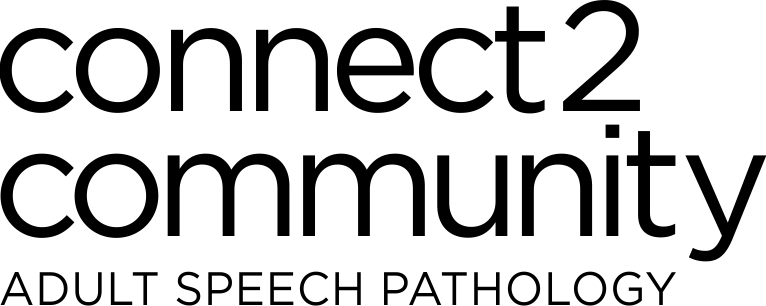

PROGRESSIVE NEUROLOGICAL COMMUNICATION DISORDERS
dementia
What is dementia?
Dementia can be described as a collection of symptoms caused by disorders affecting the brain. It is not one specific disease. Dementia is characterised by acquired and persistent impairment in several cognitive areas (memory, language, attention, executive function, visuospatial abilities). The impairments can impact on communication, social participation and engagement in life roles and activities. Given that impairments for individuals with dementia are often related to underlying impairments incognition, they are commonly referred to as a cognitive communication disorder.
The most common types of dementia are:
- Alzheimer’s disease (AD): most speech pathology research has been given to AD
- Vascular dementia
- Lewy body dementia
- Frontotemporal dementia (FTD)
- Parkinson related dementia
- Huntington related dementia
- Alcohol related dementia
What causes dementia?
Many different conditions can cause dementia. In some cases, the cause is unknown.
Communication Problems – Early Stage
Word finding difficulties. This may take the form of:
- Talking around the word e.g., target word ‘scissors’… ‘the thing we use for cutting paper’
- Vague words: ‘thing’
- Semantic errors: ‘apple’ for ‘orange’
- Sound errors: ‘appfel’ for ’apple’
Difficulty with the formation of sentences. This may take the form of:
- Shorter, simpler sentences
- Sentences with grammatical mistakes e.g., ‘Mary said he was sick’ instead of ‘Mary said she was sick’. The person may be aware/unaware of this error
Understanding sentences. This may take the form of:
- Reduced understanding of the meaning of a word e.g., What are scissors?
- Reduced understanding of more complex sentences (often due to reduced verbal memory ability) e.g., ‘The cat was chased by the dog’
Reduced social language ability. This may take the form of:
- Difficulty maintaining a topic of conversation
- Difficulty taking turns in conversation e.g., talking too much or too little
- Difficulty understanding non-literal language e.g., understanding that words can have more than one meaning, missing the humour, sarcasm in conversation
Communication Problems – Middle Stage
Increasing difficulties with the communication changes seen in the early stage leading to greater limitations in everyday activities.
Communication Problems – Late Stage
Very limited understanding of language and verbal output – leading to significant difficulty making needs, wants, thoughts and feelings known, and the person’s actions and behaviour become their main communication method.
It’s important to know the following:
- Dementia is progressive. Symptoms often begin slowly and gradually worsen over time.
- Dementia is not a normal part of ageing.
- No two people will experience dementia in the same way.
- People often lead active and fulfilling lives for many years after their diagnosis
- Support is vital for people living with dementia and their families.
- A speech pathologist plays an important role as part of the multidisciplinary team in dementia care as experts in assessment and management of communication difficulties.
- A speech pathologist can and should be involved in every stage of the dementia journey
How can connect2community speech pathology help?
A speech pathologist can:
- Identify a holistic profile of a client’s communication needs and ability
- Collaborate with client and family members towards person-centered therapy goals
- Discuss therapy options specific to the client’s communication need and goals
- Provide treatments that meets the client’s communication need and goals. All treatments focus on real-life, meaningful situations and tasks to enhance success in communication
- Provide compensatory approaches in the form of Augmentative and Alternative Communication (AAC) to increase environmental support and reduce communication barriers.
- Provide communication partner training and support for the individual with dementia and their close communication partner/s. Knowledge and the use of facilitative strategies by communication partners can enhance successful communication.
- Identify barriers and facilitators within the person’s communication environment, with the goal being – how to best support communication for the person with dementia within their community.
- Provide dementia specific education for the client and family
PHONE 0411 864 386
EMAIL info@connect2community.au
